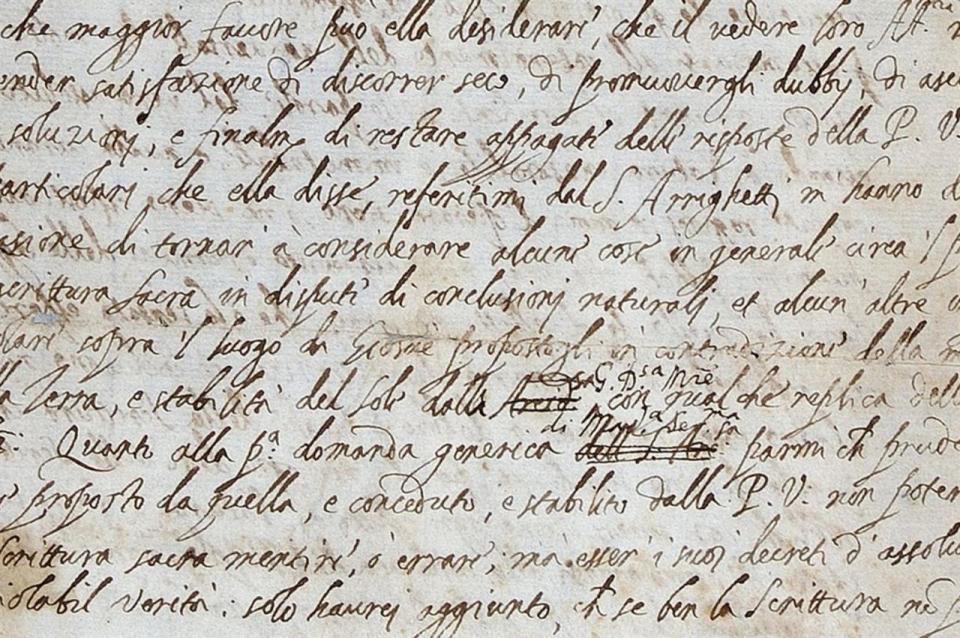Long-lost letter from Galileo reveals how he tried to escape the Inquisition

A letter written by Galileo Galilei in 1613 has thrown light on the pioneering scientist’s battle with the Church – which led to his arrest by the Inquisition.
The Italian thinker, known as the ‘father of the scientific method’, argued that the Earth revolved around the sun – an idea considered heretical at the time.
The letter surfaced from the archives of the Royal Society – and throws light on how Galileo edited his work to try and escape the clutches of the Inquisition.
READ MORE FROM YAHOO NEWS UK:
Woman, 86, has heart attack after ‘callous’ thieves steal her purse in post office
Skydiver’s chilling final post just hours before tragic fatal plane crash
Apple’s new ‘toughest ever’ £1,449 iPhone smashes very easily when dropped
Debate rages over woman who ‘reserved’ parking spot by standing in it for 10 minutes
Labour ‘not ruling out Remain option’ in second referendum, says Starmer
Salvatore Ricciardo of the University of Bergamo in Italy, who found the letter told Nature, ‘I thought, ‘I can’t believe that I have discovered the letter that virtually all Galileo scholars thought to be hopelessly lost.’

Galileo wrote the letter to a friend – and it seems that it was later edited in an attempt to ‘backpedal’ from earlier, more strongly phrased letters.
After Galileo became aware of the Inquisition’s interest, he went back and edited the letter – and used it as a plea for mercy, claiming that his words had been distorted.
In the newly found version, for instance, Galileo crossed out the word ‘false’, for instance, and replaced it with ‘look different from the truth’.
His caution was well-placed: previous supporters of the idea that Earth revolved around the sun had been burnt at the stake.
Galileo’s was tried by the Inquistion in 1633 and was found ‘vehemently suspect of heresy’. He remained under house arrest until his death in 1642.



